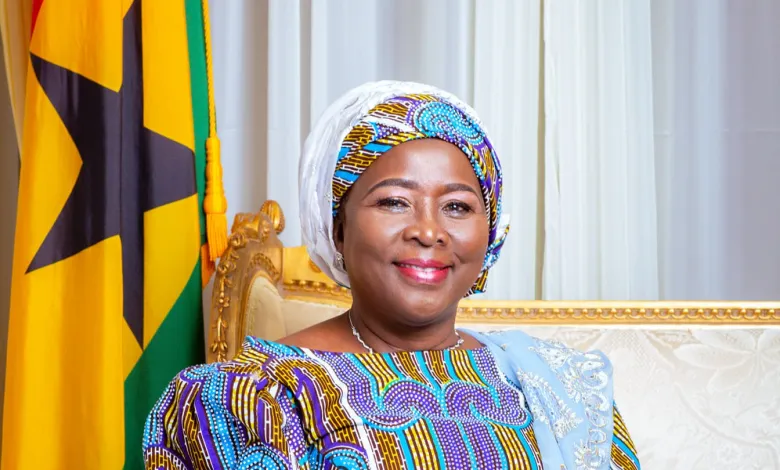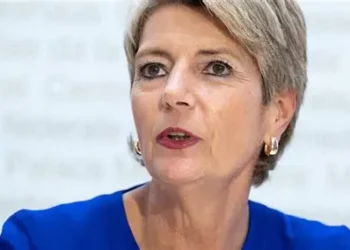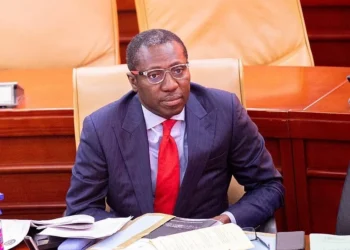The unfolding Ghana Embassy scandal involving the diplomatic mission in Washington, D.C., has sparked renewed demands for transparency, institutional reform, and accountability in Ghana’s foreign service operations.
Central to the case is Fred Kwarteng, an IT officer accused of manipulating the embassy’s website to favor his private company—Ghana Travel Consultant (GTC)—for the retrieval and delivery of visa and passport documents.
The affair, which has drawn competing narratives from Ghana’s Foreign Affairs Minister, Samuel Okudzeto Ablakwa, and former U.S. Ambassador Hajia Alima Mahama, has left policy analysts and the general public seeking clarity on a situation that threatens to mar the country’s diplomatic reputation.
While both the minister and former ambassador have shed light on the incident, their accounts raise more questions than they answer.
IMANI Center for Policy and Education, a prominent think tank, has challenged both explanations, emphasizing that significant gaps remain—especially concerning the role of Kwarteng and the legal and ethical framework underpinning Ghana Travel Consultant’s (GTC) operations within the embassy.

“Where is Fred Kwarteng, the IT Officer, around whom this whole scandal revolves? Upon the reopening of the embassy after the short closure, the Minister mentioned that a team was being sent to restructure the embassy.
“He [the Minister] mentioned that the link that directs applicants to GTC’s website to facilitate retrieval and delivery is still active. Why is it so, after more than a month, if there is indeed suspicion of fraud, conflict of interest, and corruption?”
IMANI Center for Policy and Education
Adding to the confusion, inconsistencies have emerged surrounding the timeline of Fred Kwarteng’s employment.
IMANI raised concerns about the timeline of GTC’s establishment and whether Fred Kwarteng operated the company independently or with partners before taking up his role at the embassy.
The think tank also questioned the conflicting employment dates, noting that while some minority MPs claim Kwarteng was hired in 2015, the Foreign Affairs Minister stated he joined in 2017.
Embassy-GTC Deal Questioned
The debate escalated when Hajia Alima Mahama countered the minister’s claims, insisting the embassy never offered mailing services, so it couldn’t have subcontracted one in breach of procurement laws.
She stated that “the embassy does not provide delivery services, so it could not sublet that through a contract with a third party.”
She explained that while applicants could use self-addressed envelopes through services like FEDEX and UPS, the process faced issues such as underpaid postage, wrong addresses, and unexpected costs to the embassy.

To fix this, she tasked the IT department, and Mr. Kwarteng proposed a zero-cost solution that improved delivery efficiency while shielding the embassy from liability.
However, IMANI Africa raised concerns about the embassy’s decision to closely collaborate with a private company owned by a staff member, despite having no formal mailing department.
The think tank questioned the rationale behind using the embassy’s website to facilitate GTC’s operations.
It also flagged issues surrounding GTC’s financial dealings, particularly its deposits into the embassy’s Staff Welfare Account, which reportedly remained unaudited.
Further doubts were cast over the mission’s refusal to adopt standardized web services from EMH Global, a company officially contracted by the government to streamline websites for all foreign missions.
“These questions, if answered, will help Ghanaians to get to the crux of the matter and appreciate the full weight and implications of the fraud, conflict of interest, and corruption allegations.
“For a strategic mission like the embassy in Washington D.C., these happenings and allegations are a dent on Ghana’s image at the heart of the territory of its foremost strategic partner.”
IMANI Center for Policy and Education
IMANI observed that Ghana has made recent efforts to repair its international image, including being taken off the EU’s list of high-risk third countries in 2022 for weaknesses in anti-money laundering and terrorism financing measures.
However, by mid-2025, the country is again under international scrutiny—this time facing a possible U.S. entry ban due to the rising number of Ghanaian students overstaying their F-1 visas.

The think tank warned that, while not directly related to the embassy issue, these developments “speak volumes about growing concerns about Ghana’s dwindling international image.”
IMANI expressed approval of the decision to launch formal investigations, viewing it as a step in the right direction.
The group highlighted the importance of examining the full extent of operations at the Washington D.C. embassy, including how GTC became involved, how public funds were managed, and what procedural gaps may have allowed the situation to develop.
“Simultaneously, a clear digital governance framework must be introduced across Ghana’s foreign missions to regulate third-party services, website administration, and welfare accounts, with all contracts subjected to standard procurement rules and external auditing.”
IMANI Center for Policy and Education
Ultimately, IMANI emphasized that the ongoing efforts should lead to deeper institutional reforms rather than temporary fixes.
The group urged that the changes serve as a broader accountability overhaul to strengthen Ghana’s diplomatic framework and guard against future reputational harm or structural weaknesses.
As the scandal surrounding the Ghanaian Embassy continues to unfold, national attention remains focused on how the country will respond to growing calls for justice, transparency, and renewed trust in its diplomatic service.
READ ALSO: A$AP Rocky Hints at Big Family Plans with Rihanna



















